Design to Live: Everyday Inventions from a Refugee Camp
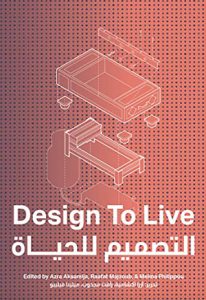
Editor(s): Azra Akšamija, Raafat Majzoub, and Melina Philippou
Publisher: MIT Press
Year of Publication: 2021
Print Length: 320 pages
Genre: Photojournalism, Non-Fiction / Art & Design, Arts & Humanities, Migration & Refugee Studies
Area: Azraq Refugee Camp, Jordan, Middle East
People: Syrian
Topic: Asylum & Asylum Seekers, Refugees & Forced Migration, Asylum & Refugee System, Lived Experience, Testimonies, Art & Design, Invention, Writing, Camps, Everyday Life, Humanity, Family, Community, Community Development, Protracted Refugee Situations, Refugee Livelihoods, Refugee-Led Organisations & Networks, Refugees’ Roles & Self-Reliance; Self-Determination, Autonomy, Agency; Humanitarian Action & Humanitarianism, Urbanization, Ecology & Climate, Energy
The power of art and design to create a life worth living: designs, inventions, and artworks from the Azraq Refugee Camp in Jordan.
This book shows how refugees use art and design to transform their living environments, restoring humanity within circumstances that seem aimed at depriving them of it. Featuring more than twenty projects created by Syrian refugees at the Azraq Refugee Camp in Jordan, Design to Live offers a new way of understanding design as a subversive worldmaking practice and as tool for reclaiming agency in conditions of forced displacement. The projects—including a vertical garden, an arrangement necessitated by regulations that forbid planting on the ground; a front hall, fashioned to protect privacy; a baby swing, made from recycled school desks; and a chess set, carved from broomsticks—showcase the discrepancy between standardized humanitarian design and the real sociocultural needs of refugees.
This bilingual book in English and Arabic documents designs by refugees through architectural drawings, illustrations, photographs, and texts by the camp residents, humanitarian workers, and researchers who collaborated on the book across cultural and disciplinary borders. Design to Live is the product of a three-year joint project of the MIT Future Heritage Lab and the Syrian refugees at the Azraq Refugee Camp, supported by CARE-Jordan and the German Jordanian University.
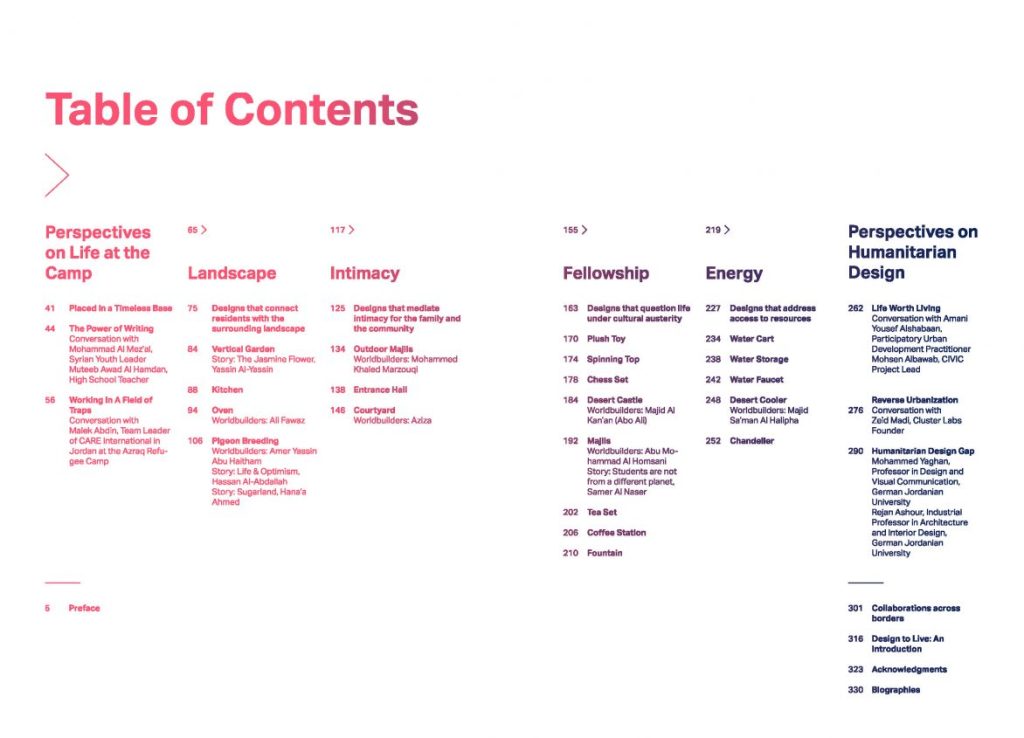
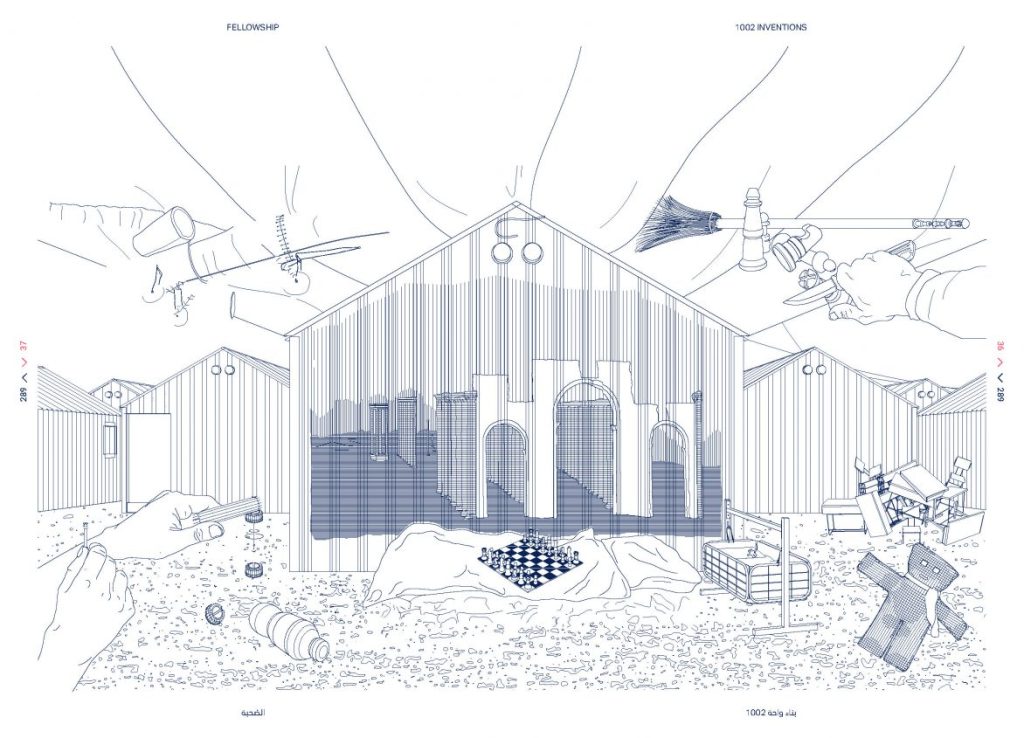
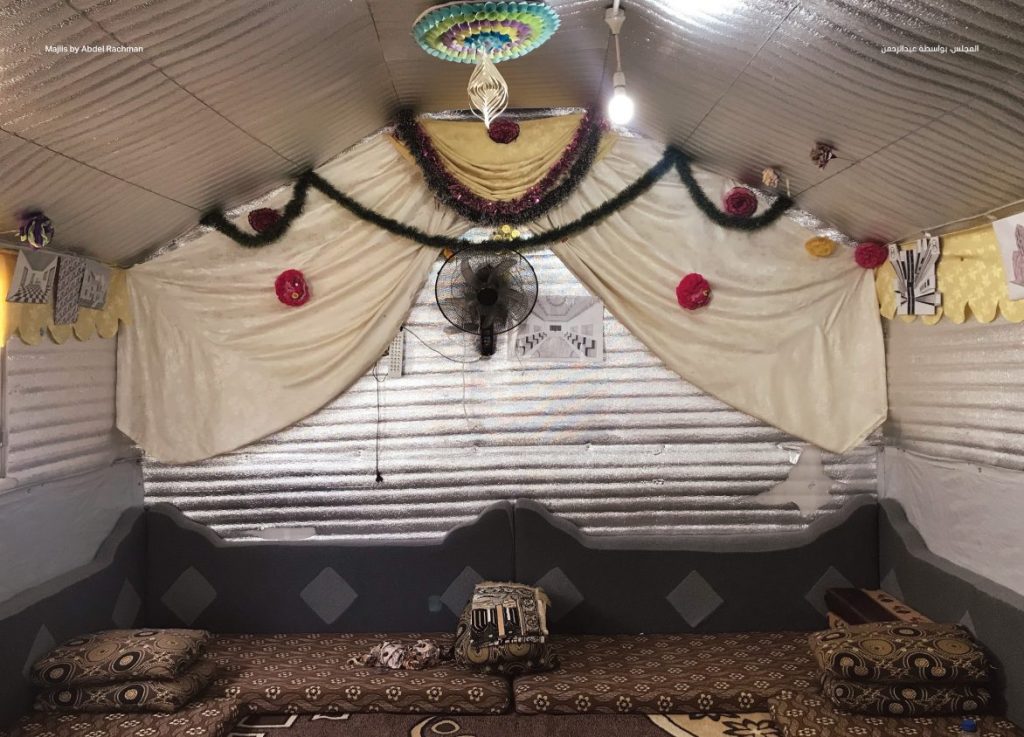
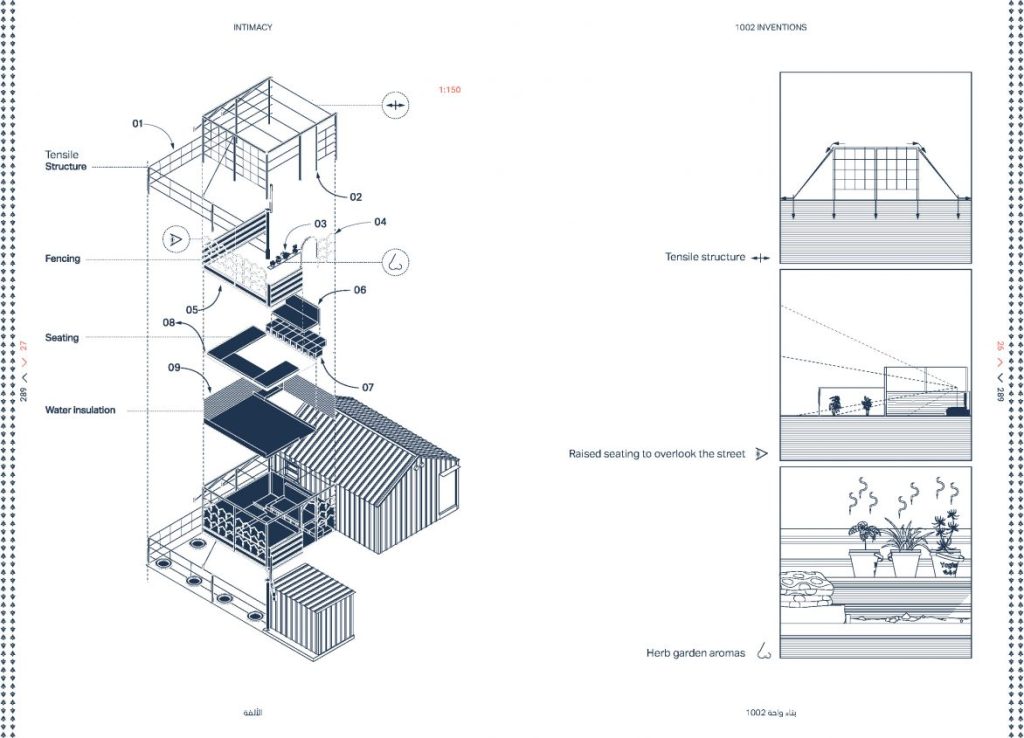
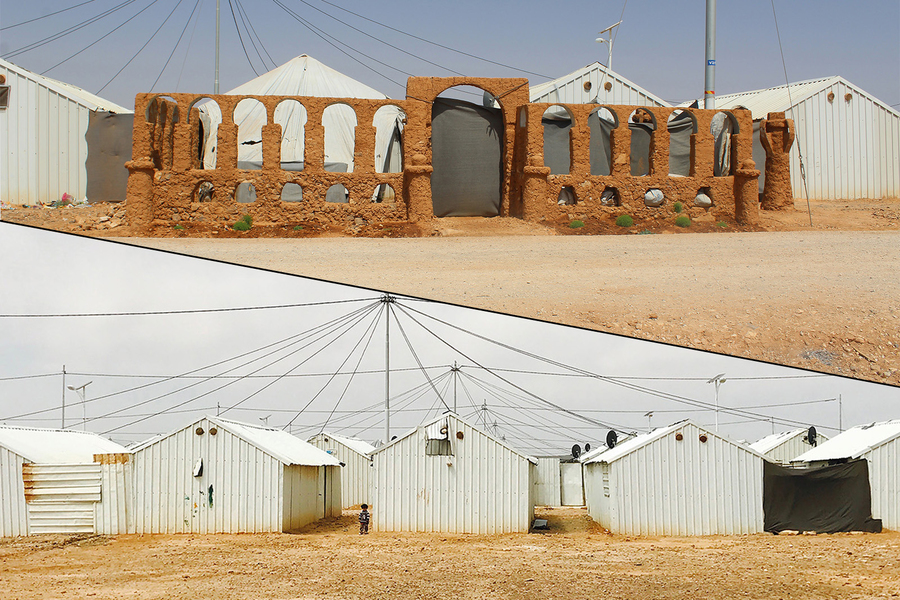
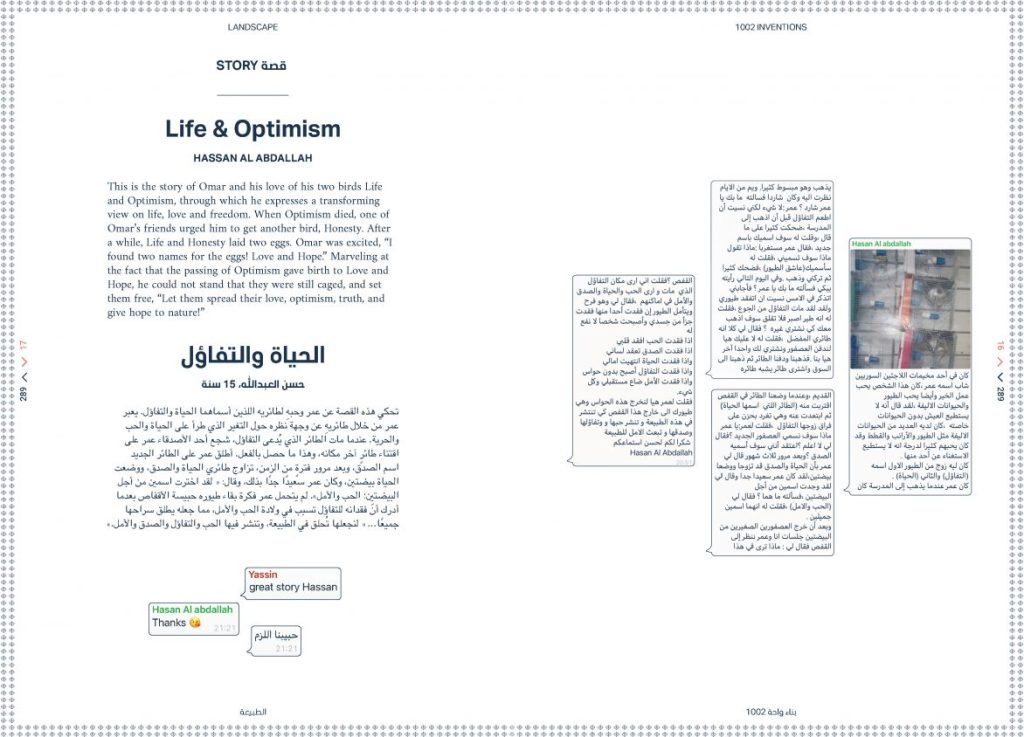
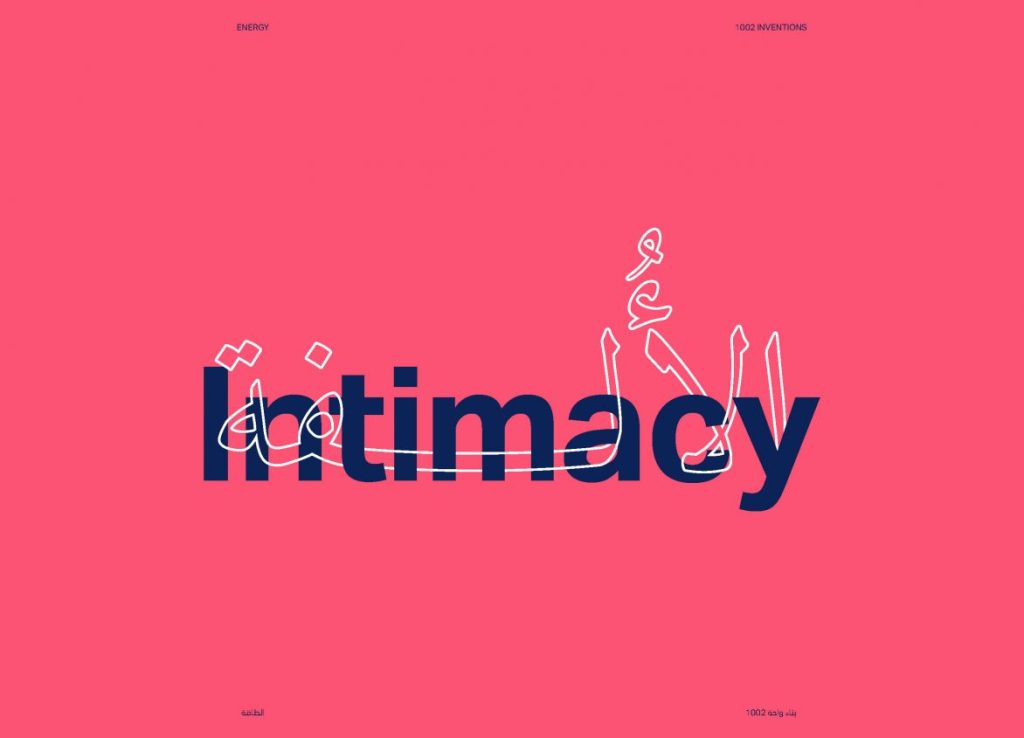
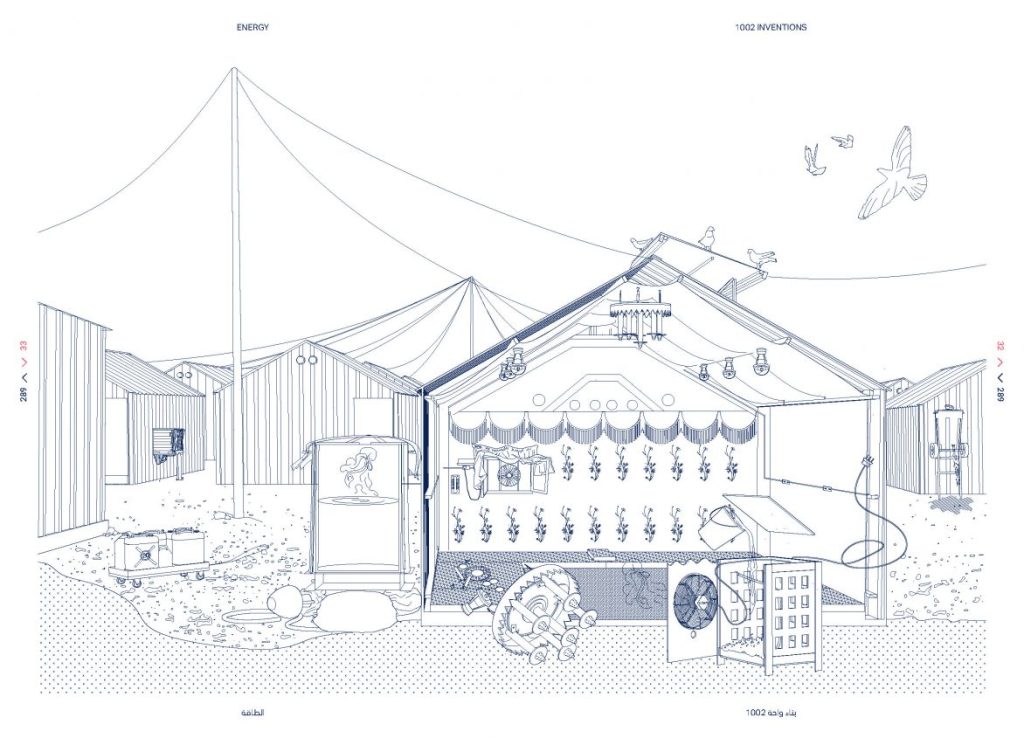
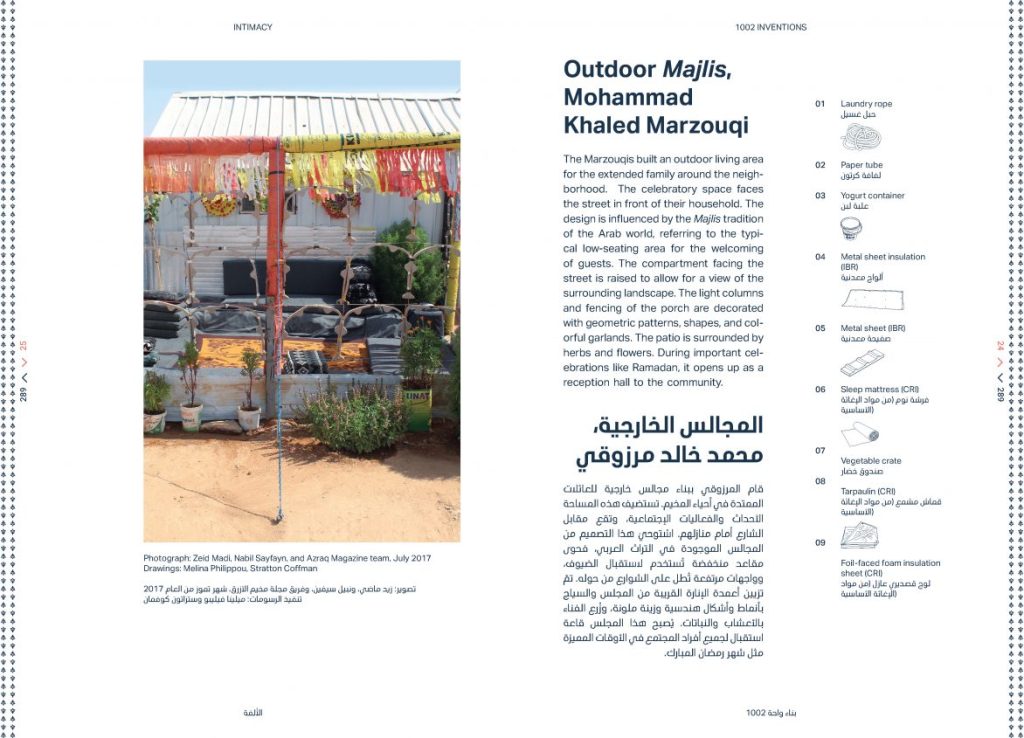
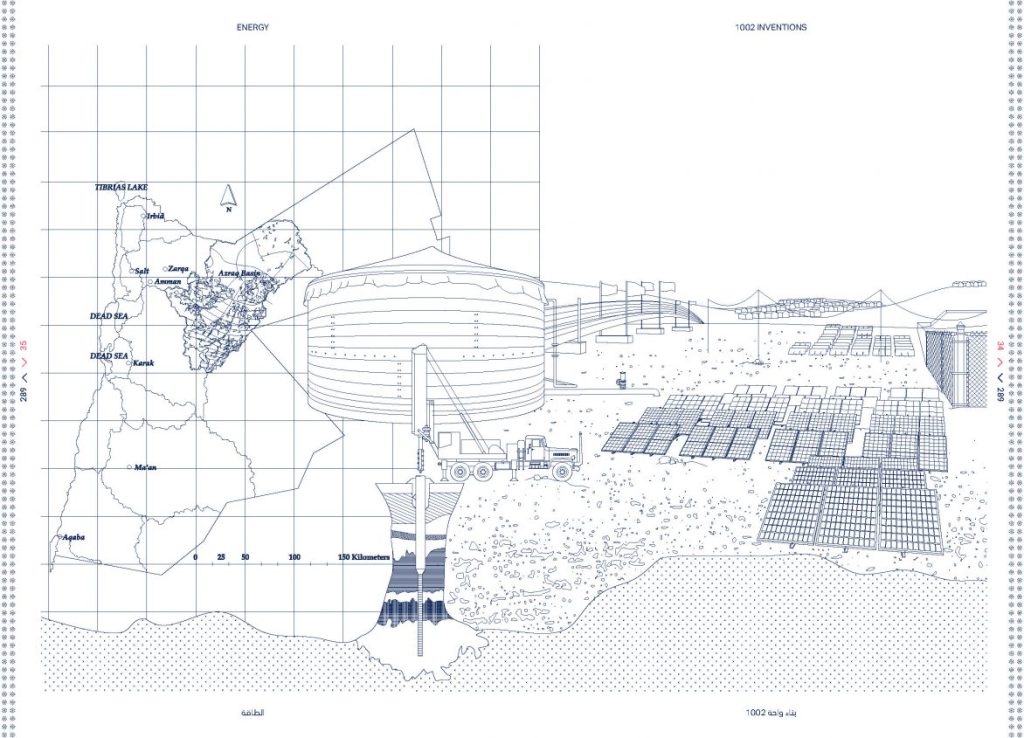
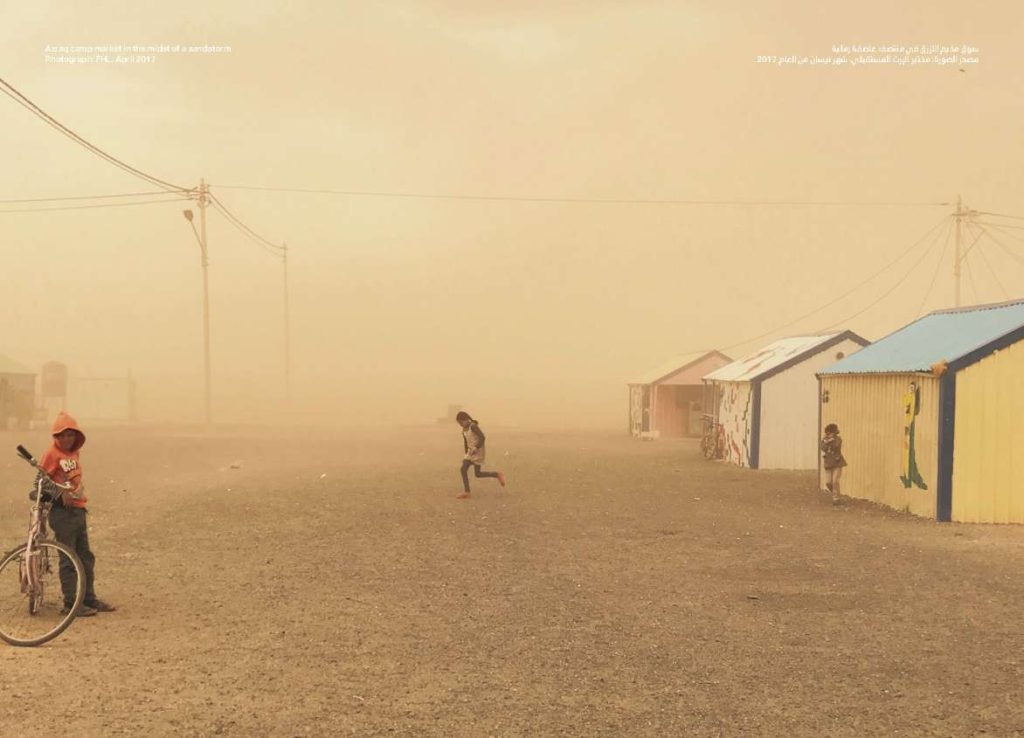
Table of Contents
Perspectives on Life at the Camp
Working in a Field of Traps
Conversation with: Malek Abdin, Team Leader of CARE International in Jordan at the Azraq Refugee Camp
The Power of Writing
Conversation with: Mohammad Abdullah Al-Mezael, Syrian Youth Leader, and Muteeb Awad Al-Hamdan, High School Teacher
Placed in a Timeless Base
Landscape
Pigeon Breeding
Worldmakers: Amir Yassin Abo Haltham
Story: Life & Optimism, Hassan Ghazi Al-Abdallah
Story: Sugarland, Hanaa Ahmad
Oven
Worldmakers: Ali Fawaz
Kitchen
Vertical Garden
Story: The Jasmine Flower, Yassin Al-Yassin
Designs That Connect Residents with the Surrounding Landscape
Intimacy
Courtyard
Worldmakers: Aziza
Entrance Hall
Outdoor Majlis
Worldmakers: Mohammad Khalid Al-Marzouqi
Designs That Mediate Intimacy within the Family and the Community
Fellowship
Fountain Coffee Station
Tea Set
Majlis
Worldmakers: Abo Mohammad Al-Homsi
Story: Students are not from a different planet, Samer Al-Naser
Desert Castle
Worldmakers: Majid Al-Kanaan (Abo Ali)
Chess Set
Spinning Top
Plush Toy
Rocking Crib
Designs That Question Life under Cultural Austerity
Energy
Chandelier
Desert Cooler
Worldmakers: Majed Shaman Al-Khalifa
Water Faucet
Water Storage
Water Cart
Designs That Enable Access to Resources
Perspectives on Humanitarian Design
Humanitarian Design Gap
Conversation with: Mohammad Yaghan, Professor in Design and Visual Communication, German Jordanian University, and Rejan Ashour, Industrial Professor in Architecture and Interior Design, German Jordanian University
Reverse Urbanization
Conversation with: Zeid Madi, Cluster Labs Founder
Life Worth Living
Conversation with: Amani Yousef Alshabaan, Participatory Urban Development Practitioner, and Muhsen Albawab, CIVIC Project Lead
Biographies
Refugee-led Designs as a Worldmaking Practice
Collaborations across Borders

Azra Akšamija is a Sarajevo born artist and architectural historian. Akšamija graduated from the Faculty of Architecture at the Technical University Graz, Austria in 2001, and received her M.Arch. from Princeton University, USA in 2004, and Ph.D. from MIT (HTC / AKPIA) in 2011. In her multi-disciplinary practice, she investigates the potency of art and architecture to facilitate the process of transformative mediation in cultural or political conflicts, and in so doing, provide a framework for researching, analyzing, and intervening in contested socio-political realities. Her recent work focuses on representation of Islamic identities in the West, spatial mediation of identity politics, and cultural pedagogy through art and architecture. Akšamija’s academic research highlights the significance of ethnic symbols, long-term cultural factors, and global cultural flows in the creation of contemporary nations. In her Ph.D. dissertation, Akšamija examined how Bosnian Muslims construct their identity through the lens of rebuilt or newly built mosques following the systematic destruction of religious architecture during the 1992-1995 Bosnian War. Her academic inquiry informs her ongoing artistic explorations about Islam in the West and the conflicts over visibility of Muslims in the United States and Europe. Akšamija’s artistic work takes shape through different types of media, including clothing, video, performance, sculpture, and new media. Among her preceding curatorial projects was the Lost Highway Expedition (2006) that Akšamija co-organized with nine international artists and architects during her tenure as a Graduate Affiliate at the Center for Advanced Visual Studies at MIT, as well as the Museum Solidarity project that she conceived and co-organized with members of the civic platform Cultureshutdown.net.
Source: https://architecture.mit.edu/people/azra-aksamija
More from Azra Akšamija in this library, click here.
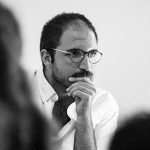
Raafat Majzoub is an architect, author and artist based in Lebanon. His work negotiates the territory of reality through literature, visual arts and public interventions, inventing and advocating accessible utopic alternatives and possible scenarios. He cofounded The Outpost, a quarterly magazine of possibilities in the Arab world and was its Creative Director for the first four issues. He penned two of its literary supplements, including an illustrated children’s book that was later turned into a play. Majzoub is a contributor to various publications in digital and print including rekto:verso, Prince Claus Review and was a weekly columnist in the Beirut-based Al-Akhbar newspaper’s English editions. At Art Culture Technology (ACT) MIT, Majzoub worked on developing a methodology of devising fiction as a constructive and speculative-historiographic tool, pushing the potential of (literary) authorship in the Arab world as a major stakeholder in its political architecture. His thesis, A Lover’s Discourse: Fictions, documents this research, elaborating his decision to found The Khan: The Arab Association for Prototyping Cultural Practices in Lebanon, an NGO that creates a cultural infrastructure to reify fictions born in a serial-novel, The Perfumed Garden, whose first title is An Autobiography of Another Arab World.
Source: https://act.mit.edu/about/people/raafat-majzoub/
More from Raafat Majzoub in this library, click here.

Melina Philippou is a Cypriot architect and urbanist, Program Director of the MIT Future Heritage Lab, and Research Associate in the Department of Architecture at the University of Cyprus. She is the project coordinator of Design to Live (MIT Press, 2021).
Source: https://mitpress.mit.edu/author/melina-philippou-36723/
More from Melina Philippou in this library, click here.
